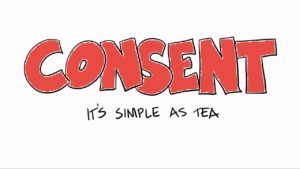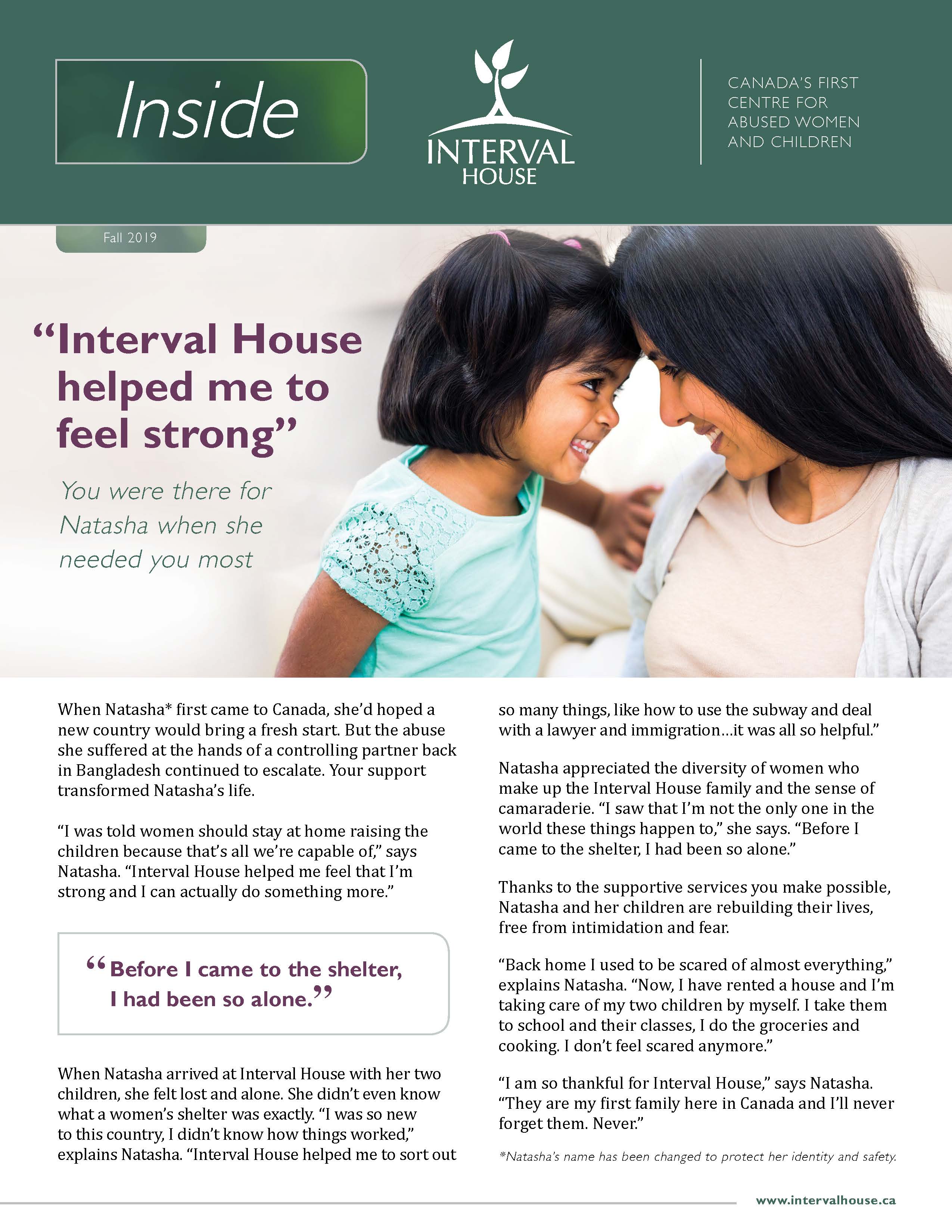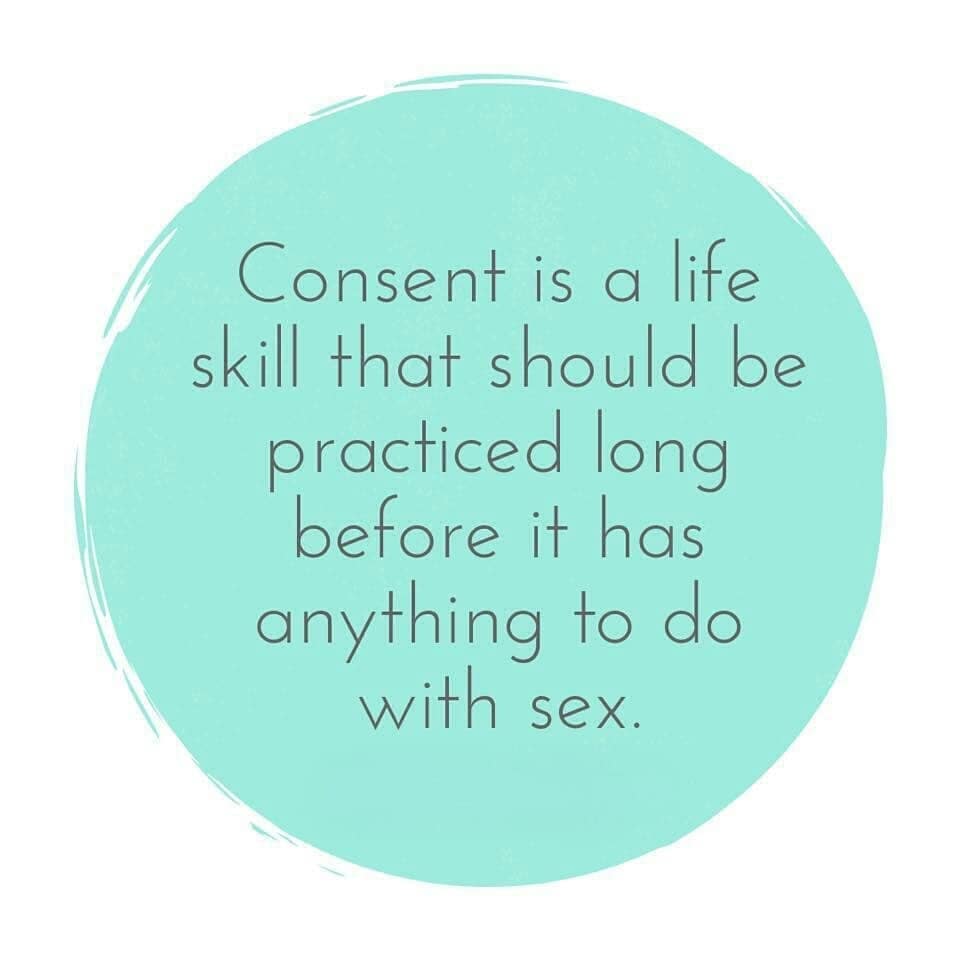
It is said that who you are is simply the sum of all the decisions you have made throughout your life. It’s the culmination of all the times you’ve said yes and no. The choices you make influence more than just the split second in which you make them. Indeed, they lead you down unique paths and help you find direction when you reach a fork in the road of your life journey.
Boundaries and consent factor into the choices you make. Checking in with yourself regularly to understand your limits can help you make the best decisions for yourself. Having a strong sense of your boundaries and those of others is a mandatory life skill that will strengthen your sense of self as well as your interpersonal relationships.
If consent is obtained without the person being aware of exactly what they are consenting to, it is not informed consent and is therefore invalid. For example, if your friend invited you to their cottage for a fun weekend, you might say yes without hesitation. But what if you got to their cottage and found out you were expected to work the whole time, fixing the deck and painting the siding? It’s possible you would have said yes either way but by leaving out the fact that you were being invited to their cottage to help with work, your friend would have failed to get your informed consent to the trip.
Sometimes feelings of obligation, guilt, or pressure can make it difficult to say no. For example, if someone suggests they may self-harm or withdraw emotional connection if they don’t get the answer they hope for, it might be difficult not to comply with their wishes. If you ever get a sinking feeling that your boundaries have been crossed or that you have crossed someone else’s boundaries, even though the answer was yes, think of FRIES. Consent is only valid if it is freely given, reversible, informed, enthusiastic, and specific. Anything less is unacceptable.
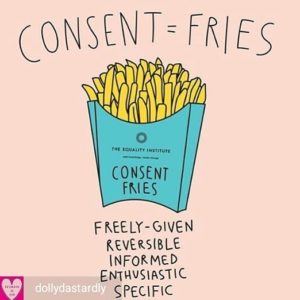
Sometimes when you say no, there will be people who have a hard time hearing it and they may bring up your own history to manipulate you into changing your answer. It’s okay if you let someone else use your iPod but said no when James asked if he could. It’s okay if you were comfortable around other people in your bathing suit but aren’t comfortable wearing a crop top to the party. It’s okay if you said yes to a sleepover with friends in the past but feel like saying no now. Your past decisions don’t negate your right to say no now. Don’t let people boil your consent and boundaries down because of what you said yes to in the past.
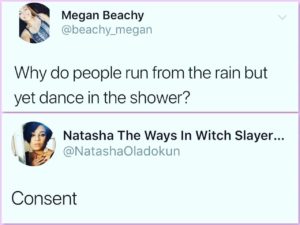
No. It’s a complete sentence. There’s no need to explain beyond it if you don’t want to. And you aren’t owed an explanation when someone says no to you either. Especially for women and folks assigned female at birth, there is socialization towards people pleasing. This can make the word no feel heavy and uncomfortable to speak aloud. Try practicing it. Say no to yourself in the mirror, firmly. Say no when your instinct is to say maybe or to avoid answering altogether. Say no when something you’re watching makes you uncomfortable. The more you practice saying no, the easier it will be to use the word when a difficult situation arises. Never let feelings of obligation or guilt overpower the instinct to say no.
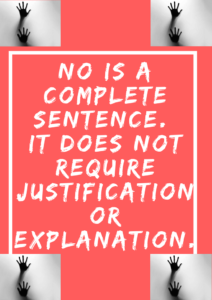
Of course, no isn’t the only way to say no. You might say, “I’m not really up for it” or “I’m uncomfortable with that” or “sounds cool but I don’t know” and that’s completely okay. Remember, anything less than enthusiastic consent is a no. It’s important to pay attention to tone and body language when seeking consent because sometimes the body has an easier time saying no than the voice.

When you have a giving nature, it can be especially hard to draw boundaries. But saying no does not make you a bad person. Giving is wonderful and virtuous but it should never be done at the expense of your own needs. You must nourish yourself first before you can nourish others. If you push past your needs in favour of giving to others, you will be sure to burn out. Then you’ll have nothing left to share. Say no when you need to so that you can say yes when you are able to. You are still kind and loving, take a moment to show that kindness to yourself.
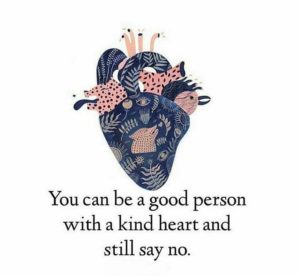
Since no isn’t the only thing that means no, perhaps you’re wondering what means yes, besides yes. When it comes to giving consent, the only thing that can be taken in the affirmative is an enthusiastic, freely-given, yes—remember FRIES! Nothing you wear, nothing you do, nothing you think, nothing you have said yes to in the past, nothing at all besides yes means yes. It’s important not to let anyone shame you for things that happened to you against your consent. No one is ever asking to have their boundaries crossed.
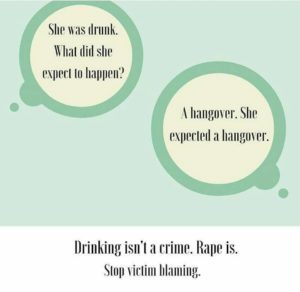

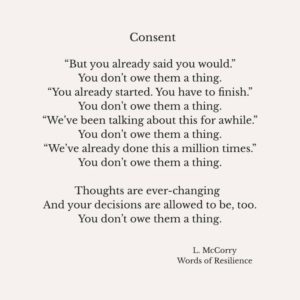
Consent really is simple—as simple as tea! This video details the nuances of consent very clearly. Just remember: yes means yes, no means no, and anything in between means no too! Be mindful of how you feel when giving consent and take note of the non-verbal cues of others when requesting theirs. I’m sure you don’t want to do anything that would make you or anyone else uncomfortable so always accept a no gracefully and compassionately, the same way you would want someone else to take a no from you.

